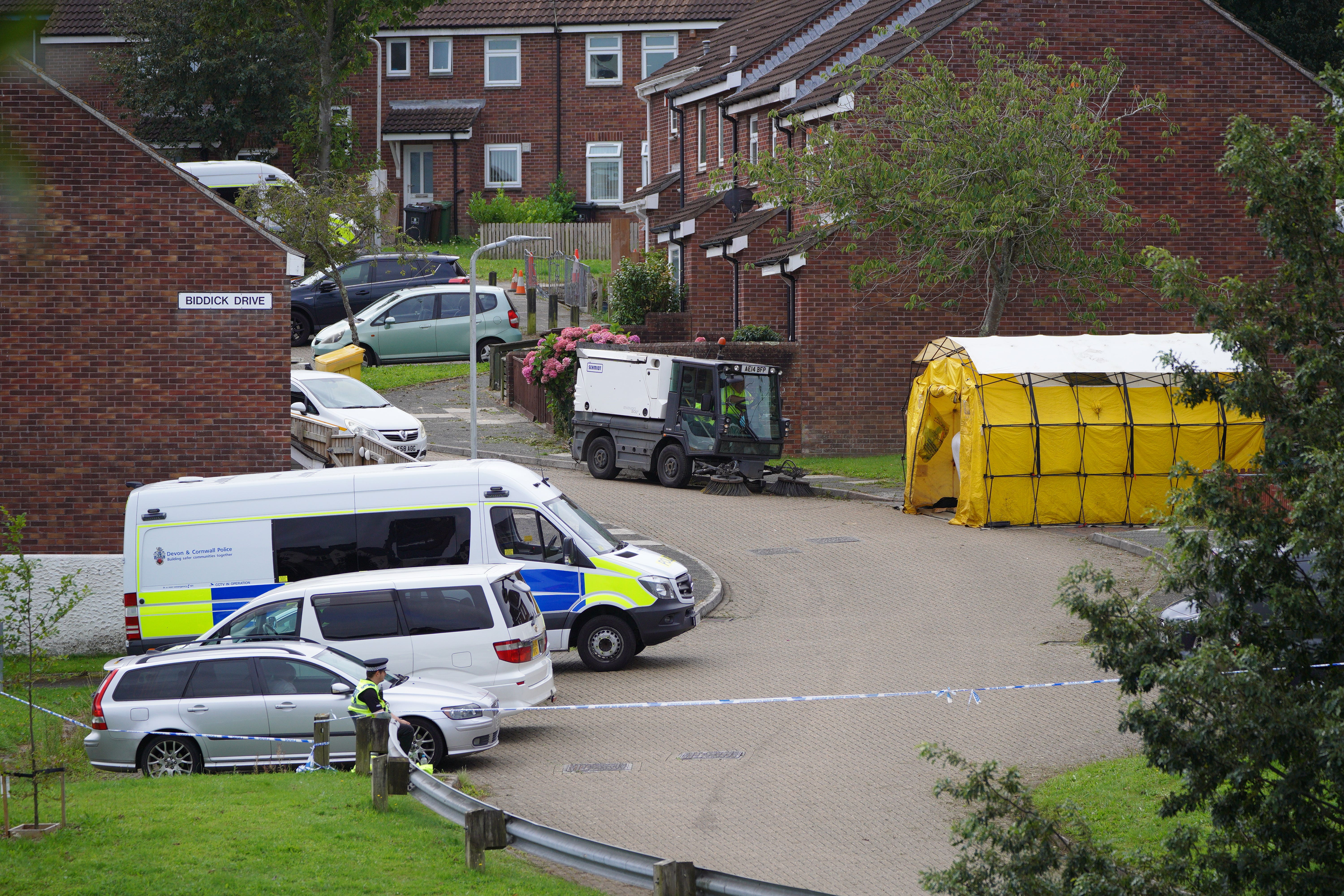Families of Keyham victims call for shotgun legislation changes, inquest hears
They want to see the law updated to end the distinction between the licensing of shotguns and rifles.

Your support helps us to tell the story
From reproductive rights to climate change to Big Tech, The Independent is on the ground when the story is developing. Whether it's investigating the financials of Elon Musk's pro-Trump PAC or producing our latest documentary, 'The A Word', which shines a light on the American women fighting for reproductive rights, we know how important it is to parse out the facts from the messaging.
At such a critical moment in US history, we need reporters on the ground. Your donation allows us to keep sending journalists to speak to both sides of the story.
The Independent is trusted by Americans across the entire political spectrum. And unlike many other quality news outlets, we choose not to lock Americans out of our reporting and analysis with paywalls. We believe quality journalism should be available to everyone, paid for by those who can afford it.
Your support makes all the difference.The families of the victims of gunman Jake Davison are calling for changes in shotgun licensing in the wake of the killings, an inquest heard.
They want to see the law updated to end the distinction between the licensing of shotguns and rifles.
Changes in the law could see limits placed on the types of shotguns legally held, the type of ammunition a certificate holder could buy and amounts they could store.
Devon and Cornwall Police had granted Davison a five-year shotgun certificate in January 2018, and he later bought a pump-action Weatherby shotgun and hundreds of rounds of cartridges suitable for shooting large game.
On August 12 2021, Davison killed his mother Maxine, 51, three-year-old Sophie Martyn, her father, Lee, 43, Stephen Washington, 59, and Kate Shepherd, 66, in Keyham, Plymouth.
The inquest in Exeter heard evidence from civil servant Nicholas Hunt, who is the head of the firearms policy unit at the Home Office, to explain UK firearms legislation and guidance to police forces.
Dominic Adamson KC, representing the victims’ families, asked: “Does the Home Office accept that the distinction between shotguns and Section 1 firearms in the 1968 Act is such that the legislation isn’t fit for purpose?”
Mr Hunt replied: “I think since the 1968 Act there are distinct differences between firearms and shotguns, such as around referees.
“We are considering whether we need to change that. We have strict conditions in this country, such as home checks and medical reports.”
Mr Hunt said the 1968 Act did have “teeth” and said differences emerged because shotguns were historically used by farmers and gamekeepers, while rifles were more popular for sport.
Mr Adamson said: “One of the outcomes of this inquest should be that the Home Office puts forward legislation to amend the Firearms Act or to revoke it.”
Mr Hunt replied: “I can’t comment to that. If the coroner makes such a recommendation, we would look at it.
“If we were to align shotguns with Section 1 firearms, we would have to change the primary legislation.”
He said the Home Office would also consider whether to introduce a statutory declaration on those providing references on behalf of shotgun applicants.
Following the 1996 Dunblane tragedy, the Cullen report made a series of recommendations around firearms, including training for police staff assessing applications and doctors to provide medical information.
Mr Adamson suggested there was a failure by the Home Office to ensure national training was introduced in the wake of Dunblane.
“The position is of ad hoc arrangements without any national oversight,” he asked.
Mr Hunt replied: “I am not sure that is fair. The Cullen recommendations were accepted by the government at the time.
“The guidance to the police was provided by the 2002 guidance and training was provided throughout that time.
“I don’t quite accept your view.”
Mr Adamson suggested the Government’s acceptance of the Cullen report was “just words” and never developed a national training programme.
“It led to two Acts of Parliament and the development of the Home Office guidance,” Mr Hunt replied.
“It would be for the police to take forward as a whole training. It would not be for the Home Office to take it forward.”
The hearing was told a coroner who presided over the deaths of a woman and her daughter by her partner in 2014 in Surrey said it was a “matter of concern” there was no national training course available at that time and wrote to the Home Office highlighting this in July 2019.
Mr Hunt said: “I understand we responded in October 2019 and we provided evidence to the coroner regarding the guidance.”
He explained new guidance was introduced in April 2016 which said police should seek medical information from GPs when considering applications.
Only two months later, the British Medical Association withdrew its support – meaning many GPs felt unable to provide the requested information.
Mr Hunt said: “The Home Office was very concerned at the time as the Home Office did a lot of work to try and engage with the BMA and to try and understand the decision.”
Following the Keyham incident, police now have to check an applicant’s social media usage prior to granting a certificate.
Further guidance has been published this week by the Home Office to help police forces assess social media usage.
A new computer system was also in place for doctors to know whether a patient is a firearms holder, the court heard.
He said a marker would be issued before the granting of a certificate and afterwards – to allow for changes in the intervening period to be flagged up to the police by doctors.